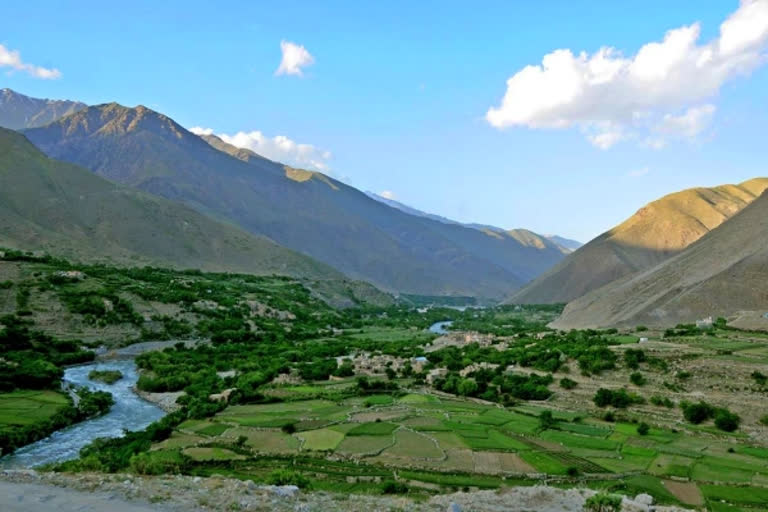New Delhi: It is like Uderzo and Goscinny’s Armorica, the fabled Gaul village of Asterix and Obelix that stays fearless and obdurately independent even against the mighty Romans. But the similarity stops at that. For Armorica is from the pages of fantasy, Panjshir Valley is not.
One of the 34 provinces of Afghanistan and just about 70 miles north of Kabul, the ‘forbidden’ Panjshir Valley is another name for resistance.
Justifying the legend, it lived up to its name and fame when on Tuesday (August 17), Amrullah Saleh, the First Vice-President in the Ashraf Ghani-government, declared himself to be the President of Afghanistan after Ghani took flight and sought refuge in the UAE.
Speaking from Panjshir, Saleh proclaimed the formation of an anti-Taliban front, along with Ahmad Massoud and former defense minister Bismillah Khan Mohammadi. Interestingly, the three are ethnic Tajiks, all of them born in Panjshir.
Massoud, 32, son of the legendary Ahmad Shah Massoud wrote on Wednesday: “I write from the Panjshir Valley today, ready to follow in my father’s footsteps, with mujahideen fighters who are prepared to once again take on the Taliban.”
Just to place it in context, Taliban de facto head Mullah Baradar as well as former president Hamid Karzai, who has been roped in to negotiate with the Taliban are both ethnic Pashtuns, both from the Popalzai tribe while Taliban leader Haibatullah Akhundzada is an ethnic Pashtun from Kandahar.
Interestingly, Abdullah Abdullah, who is becoming an important player in the negotiations with the Taliban is the son of a Pashtun father and a Tajik mother from Panjshir but both from Panjshir.
Read: Taliban urges undocumented people to leave Kabul airport
Surrounded by craggy and lofty mountains, deep gorges cut through by the gurgling Panjshir river, with an omnipresent view of snow-clad peaks, Panjshir Valley opens up to outsiders only through a narrow opening in the mountains—a reason why it has been considered an impregnable fortress from the military point of view.
But the tough terrain and the rugged land have also made the people a closed community of indomitable fighters among the local Tajiks who excelled in guerrilla warfare. The terrain is perfect to stage ‘hit-and-run’ tactics, to stage ambushes, and also to scurry into spots to hide and wait out the enemy.
They are among the reasons why the Russians could not conquer it after invading Afghanistan in 1979 till the withdrawal in 1989, nor the Taliban during their five-year stint in Kabul from 1996 to 2001 before the US-led coalition forces dispersed the Taliban.
To fight the Russians, Ahmed Shah Massoud, also called the ‘Lion of Panjshir’ organized a band of Mujaheedins in June 1979, who successfully resisted the ‘Panjshir offensives’ executed by the Soviets from 1980-85 to gain control over the strategic valley.
And against the Taliban from 1996 onwards, it was the Northern Alliance that resisted the inroads. The name was again Ahmed Shah Massoud and the place was yet again Panjshir.
What also makes the place a focal point of resistance is that it has Afghanistan’s thickest concentrations of Persian Dari-speaking Tajiks with close blood and kinship ties. Tajiks form 37 percent of the total 3.8 crore population of Afghanistan. Another 37 percent is formed by the Pashtuns while the Hazaras comprise 10 percent and Uzbeks 9 percent.
While the Taliban is largely Pashtun-dominated, the Afghan army is dominated by Tajiks—very important issues in the backdrop of rife tribal and clan rivalries in Afghanistan.



